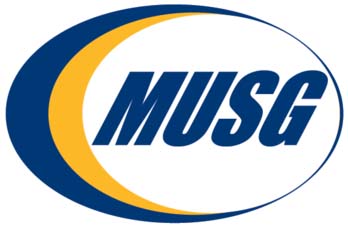Marquette Student Government considered a proposal Thursday for the allocation of $21,000 in unanticipated student activity fee revenue to the MUSG budget. At the same meeting, MUSG also voted to approve student organization funding for several club sports allocations for the spring semester.
The unanticipated student activity fee revenue comes from the budgeting process with the university administration. Every year, the university calculates what undergraduate enrollment will be for the upcoming semester, and then it adjusts that figure based on what actual enrollment will be and what new estimates are for the spring semester. MUSG uses those calculations to determine what the student activity fee revenue will be. This year, after the university made its adjustments, MUSG was able to calculate an additional $21,000 in student activity fee revenues, making this the second year in a row that figure increased.
“Because this is just a budget, the amount we will receive in addition won’t be exactly $21,000” said Cole Johnson, Financial Vice President and a junior in the College of Business Administration. “But the idea is that you estimate as close as possible.”
Four proposals were brought to MUSG on how to allocate the funds, but the proposals were voted on as a whole and were not passed because they did not receive the required 22 votes. The largest single allocation of funds would have added $6,900 to the National Jesuit Student Leadership conference budget line, which already has $100 in it.
Another proposal would have allocated $7,425 to Program Board. This included $5,000 allocated for speakers and $2,425 allocated for MUSG’s “Unplugged” series. The extra funds going to unplugged MUSG would bring two or three more performers to campus under the series and cater the events with cookies and coffee. MUSG also allocated $375 to replace the office printer, which multiple MUSG sources described as broken.
In accordance with the MUSG constitution, 30 percent of the unanticipated funds were allocated to student organization funding. The $6,300 was split between club sports and non-club sports funds, with $3,850 going to non-club sports and $2,450 going to club sports. Even though the proposals were not approved, the constitutional amendment mandating 30 percent of the funds go to SOF meant that MUSG was able to allocate the extra money during the recent club sports SOF allocations for the spring semester.
MUSG allocated $40,000 to 23 club sports teams for the spring semester. As per its by-laws, MUSG senate voted to approve the six allocations that were above $2,500. All six allocations were approved.
Men’s club lacrosse received the largest allocation. MUSG granted full funding to the team for travel lodging and registration fees. MUSG allocated $100 less than was requested for referee fees because the team only gave rationale for $500 in referee fees even though it requested $600 for that item.
The smallest allocation for the club sports spring funding period was $275.84 to club curling under the event “Marquette Curling Tournaments.” No further information was given.


